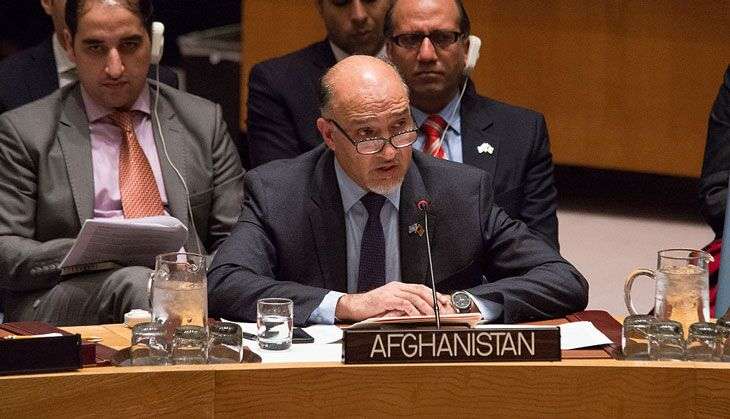
Pakistan-based terror groups such as LeT, the Taliban, JeM and Al Qaeda target India's interests and goals in Afghanistan and pursue other objectives like creating sanctuaries and safe havens in tribal areas between Kabul and Islamabad, Afghan envoy to the UN has said.
"In Afghanistan, regional terrorist groups have cooperated with the Taliban based on their common goals and mutual interests. These groups include Lashkar-e-Taiba, Tehrik-i-Taliban Pakistan, Jaish-e-Mohammad, Al Qaeda and Lashkar-e-Islam, Sipah-e-Sahaba, Islamic Movement of Uzbekistan, Eastern Turkistan Islamic movement.
"These groups pose a strategic threat to the security and stability of Afghanistan," Permanent Afghan Representative Mahmoud Saikal said at an open briefing of the Counter- Terrorism Committee on foreign terrorists on 22 July.
He said these terror groups "pursue a few objectives" in Afghanistan, the main among them being "revival of the Islamic Emirate of Afghanistan, targeting India's interests and goals in Afghanistan" and forming "strategic alliances with international terrorist networks in the region and world."
These groups also seek withdrawal of foreign forces from Afghanistan, creating bases and safe havens in northern and north-eastern provinces and using them as a platform for "undermining and toppling" Central Asian "secular" governments, Saikal said.
They also pursue the objective of creating "sanctuaries and safe havens" in tribal areas between Afghanistan and Pakistan and along the Durand Line, the 2,430-kilometre long international border between Pakistan and Afghanistan.
He said there are 6,100 foreign fighters in Afghanistan, based mainly in eastern and north-eastern provinces. Among them about 1,800-2,000 have pledged allegiance to the Islamic State.
"We also have Pakistani terrorist groups like JeM, Laskhar-e-Islam also cooperating with the Taliban in eastern and south-eastern provinces of Afghanistan," Saikal said.
The threat of foreign fighters and regional terror groups are of "growing concern" to Afghanistan and the world, the Afghan envoy said.
"Improving the implementation of counter-terrorism resolutions is crucial, especially the UN Security Council (resolutions). Speed is the essence and at the moment, terror is moving fast. I hope we can catch up with it soon," he said.
In a scathing attack on Pakistan last month, Afghanistan had said the killing of notorious terrorist leaders, including Osama Bin Laden and Mullah Mansour in "safe havens" in Pakistan, prove that it violated sovereignty of other nations and the county needs political will and not "nuclear deals or F-16s" to take action against terrorists.
Saikal had accused "elements within the state structure of Pakistan" of facilitating most of the terrorist groups active in the region and had warned that a country using "good and bad terrorists" against each other is "playing with fire".
Saikal had quoted President Ashraf Ghani's address to joint sitting of the National Assembly where the Afghan leader had called on Pakistan to take action against terrorists who have their bases and leaders in the neighbouring country.
Despite Afghan National Defense and Security Forces dealing a heavy blow to Islamic State and Al Qaeda, the terror groups continue to position themselves to re-emerge in Afghanistan.
"Al Qaeda has gone dark and deep. Other regional terrorist networks, with links to Central Asian republics, Chechnya and China are highly active in our region. Tehrik-i- Taliban Pakistan, in coordination with other terror groups, remains a long-term threat to the security and stability of our region," Saikal had said.
"What is more important, most of these terrorist groups and networks enjoy the facilitation and orchestration services of elements within the state structure of Pakistan who believe in the use of violence in pursuit of political objectives."
--PTI


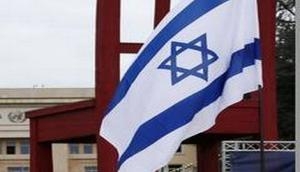
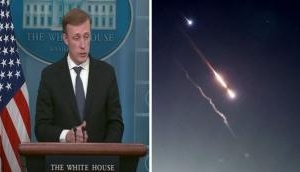
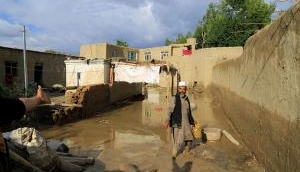
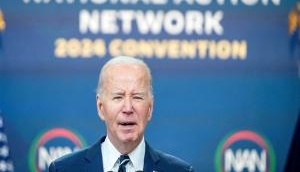
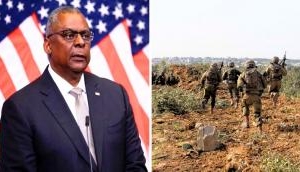
![BJP's Kapil Mishra recreates Shankar Mahadevan’s ‘Breathless’ song to highlight Delhi pollution [WATCH] BJP's Kapil Mishra recreates Shankar Mahadevan’s ‘Breathless’ song to highlight Delhi pollution [WATCH]](http://images.catchnews.com/upload/2022/11/03/kapil-mishra_240884_300x172.png)

![Anupam Kher shares pictures of his toned body on 67th birthday [MUST SEE] Anupam Kher shares pictures of his toned body on 67th birthday [MUST SEE]](http://images.catchnews.com/upload/2022/03/07/Anupam_kher_231145_300x172.jpg)






